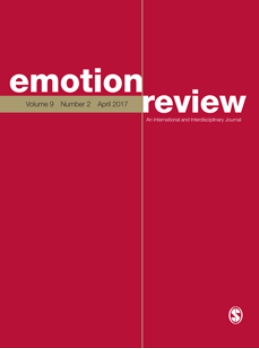人类世被自然感动:论生态崇高的极限
IF 3
2区 心理学
Q1 PSYCHOLOGY, MULTIDISCIPLINARY
引用次数: 0
摘要
根据最近的报道,当一种情况发挥了我们的核心价值观时,我们会感受到“被感动”的情绪。然而,非人类景观唤起的核心价值观是什么,特别是在所谓的人类世中,人造环境和自然环境之间的区别变得越来越模糊的时候?这是本文所讨论的核心问题。我首先重新思考崇高是一种影响,自浪漫主义以来,它塑造了西方对自然的态度。我认为,今天的气候危机需要我们扩大与非人类的情感接触:崇高可以成为我们情感曲目的一部分,但前提是它要因指向构成性人类-非人类纠缠的情感而变得复杂。本文章由计算机程序翻译,如有差异,请以英文原文为准。
Being Moved by Nature in the Anthropocene: On the Limits of the Ecological Sublime
According to recent accounts, we experience the emotion of “being moved” when a situation brings into play our core values. What are the core values evoked by nonhuman landscapes, however, particularly as the distinction between man-made and natural environments becomes increasingly blurry in the so-called Anthropocene? That is the central question tackled by this article. I start by rethinking the sublime as an affect that, since Romanticism, has shaped Western attitudes toward nature. I argue that today's climate crisis calls for an expansion of our affective engagement with the nonhuman: the sublime can be part of our emotional repertoire, but only if it is complicated by feelings that point to constitutive human–nonhuman entanglement.
求助全文
通过发布文献求助,成功后即可免费获取论文全文。
去求助
来源期刊

Emotion Review
PSYCHOLOGY, MULTIDISCIPLINARY-
CiteScore
6.60
自引率
3.70%
发文量
34
期刊介绍:
Emotion Review is a fully peer reviewed scholarly journal. It adheres to a blinded peer review process in which the reviewer"s name is routinely withheld from the author unless the reviewer requests a preference for their identity to be revealed. All manuscripts are reviewed initially by the Editors and only those papers that meet the scientific and editorial standards of the journal, and fit within the aims and scope of the journal, will be sent for outside review. Emotion Review will focus on ideas about emotion, with "emotion" broadly defined. The Review will publish articles presenting new theories, offering conceptual analyses, reviewing the literature, and debating and critiquing conceptual issues.
 求助内容:
求助内容: 应助结果提醒方式:
应助结果提醒方式:


